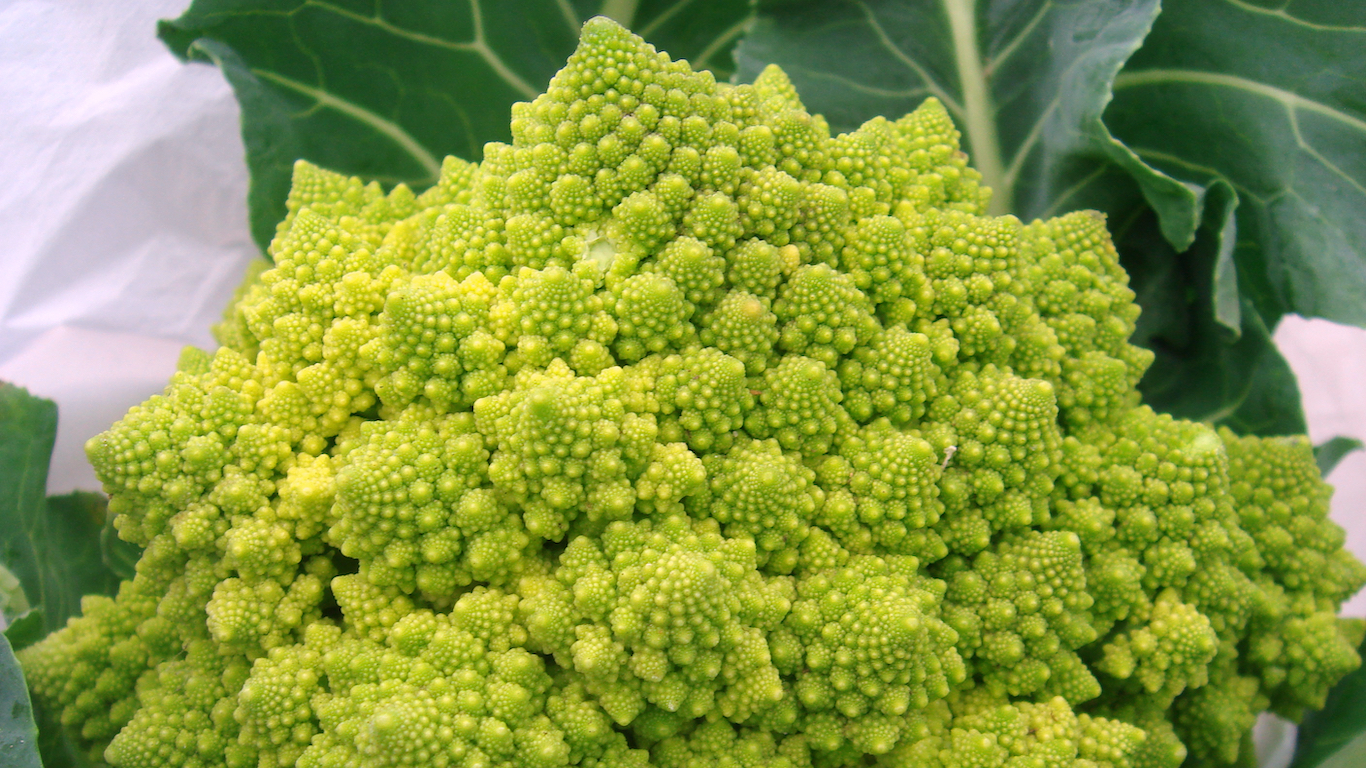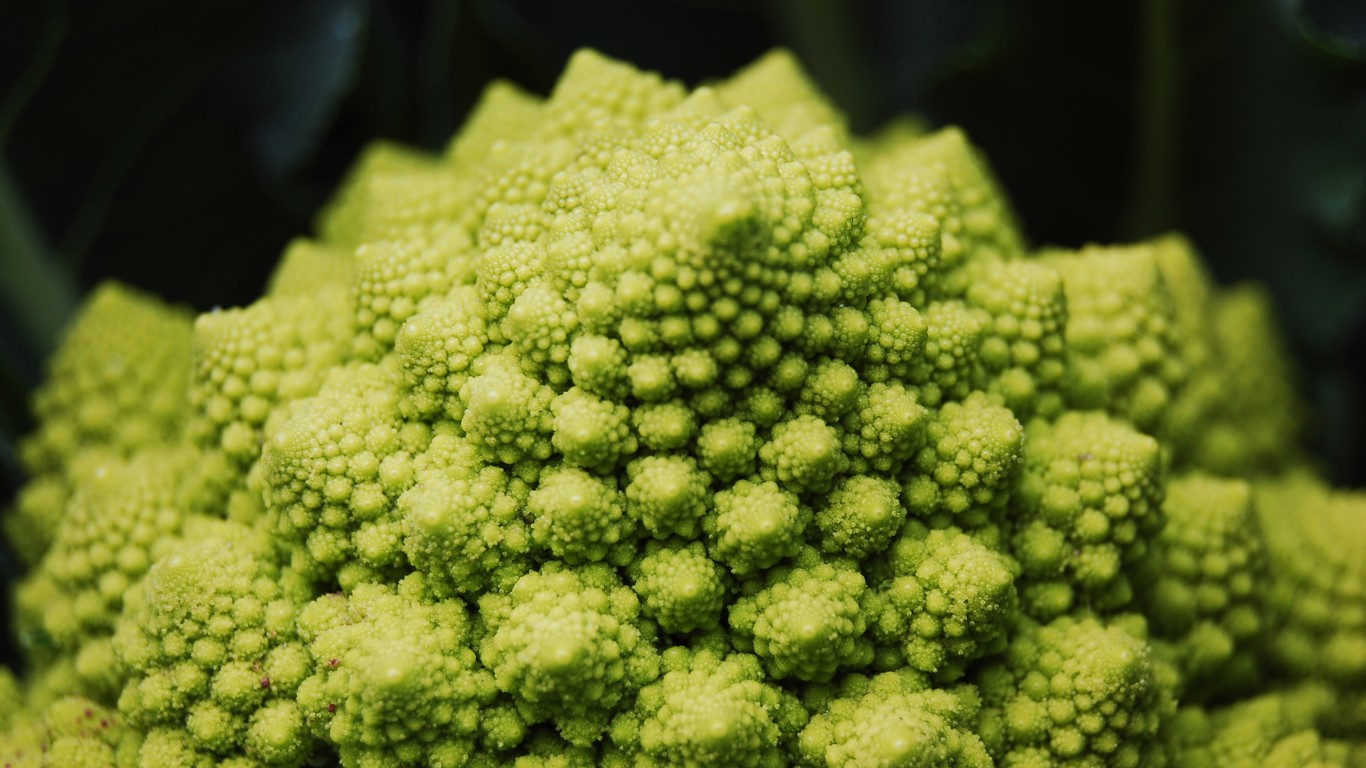In the world of food, there’s always something new on the horizon — and on supermarket shelves, restaurant menus, and dinner tables. An astonishing 15,000 or so new food products are introduced in the U.S. each year, according to a recent study out of Kansas State University.
That number, though, refers only to items developed for commercial distribution (about 90% of which will fail, incidentally, according to the Kansas study). In addition, there are traditional foodstuffs and dishes from the world’s cuisines that have become popular here for the first time; varieties of produce either recently hybridized or just now making their way into the American market; and the small-scale innovations of creative bakers, chefs, brewers, and other food craftspeople.
24/7 Tempo has assembled a list of 30 foods (well, 27 foods and three drinks) that anyone interested in expanding his or her culinary experience ought to try before the year is out. A number of these have been around for years, if not centuries — vegetables like the eerie-looking broccoli variation called romanesco; spice mixtures like Ethiopia’s hauntingly complex berbere — but have only recently become well-known or widely available.
Others, new to the supply chain, have been developed by corporate kitchens and food scientists and are available in grocery stores and/or through Amazon, Walmart, and other websites. Any of these might well become part of the way we eat from day to day — as have many of the biggest trends in food and drink since 2010.
Included on our list are snack foods, fruit and vegetables, meats, condiments, baked goods, desserts, and beverages. Some familiar names are involved, like Lay’s, Peeps, and Reese’s, in some of these products. There are products from or inspired by cuisines from India, China, Japan, Italy, Brazil, Georgia (the Central Asian one), and more. Some of the things included here are pure indulgence and might even qualify as junk food, while others are healthy, being low in carbs or fat or involving so-called superfoods. (These are 23 fall superfoods that will aid weight loss.)
Not everybody will like everything on this list, of course, but there’ll be something for everybody here. The world is full of flavors; try some that you might not already know.

1. Kelp jerky
Seaweed snacks have been a thing for five years or so, but a company called Akua has released a new line of particularly satisfying, almost meaty “jerky” made from kelp and shiitake mushrooms (see below). Three flavors are currently available, including a sesame and nori sea salt version that evokes the ocean and a smoky rosemary and maple BBQ variation.
2. Puffed lotus seeds
In Greek mythology, lotus-eaters consumed a mysterious plant that induced forgetful bliss. Today, lotus seeds, also called water lily seeds — or makhana in India — are more likely to summon feelings of virtuous satiety. They puff up nicely, a bit like popcorn, and while they’re fairly bland by themselves, they’re a good vehicle for various flavorings. The Hopapops brand, for instance, sells them in variations including white cheddar and mango habanero.

3. Shiitake crisps
Flavorful shiitake mushrooms, the most popular variety in Japan, are packed with umami, the savory “fifth taste” that gives rich, earthy character to some foods. Add flavorings like honey butter or barbecue spices to crunchy dried shiitakes and they become pretty much irresistible.

4. Soy sauce and mayonnaise potato chips
The Japanese love mayo, and of course soy sauce has been a part of their traditional diet for more than a century. Some clever snack-food company had the bright idea of combining these elements as a flavoring for crisp, light potato chips, and it works like a charm.

5. Wavy Electric Lime and Sea Salt Potato Chips
Ridged or wavy potato chips somehow seem more satisfying than flat ones (even Pringles has gotten into the wavy game), and the bright, salty lime flavor of these is, well, electrifying. (They practically call out for a shot of tequila on the side.) The chips are currently out of stock with most purveyors, but it’s well worth watching for their return.
6. Baked cheese bars
These are like a bar-shaped, neatly packaged version of the baked Italian cheese crisps called frico — but made with aged cheddar in this case. They are a low-carb dieter’s dream: You don’t need cheese and crackers when the cheese and crackers are in effect one and the same.

7. Broccoli pizza crust
Cauliflower pizza crust is old news these days, but now cauliflower’s cousin broccoli is getting into the act. Does broccoli pizza crust taste okay? Sure, with enough good things on top. Is it as good as a traditional crust? Maybe not, but it’s much better for you.
8. Khachapuri
After you’ve had a few broccoli-crust pizzas, treat yourself to this extravagant cheese-filled bread from Georgia — the one in Central Asia. You’ll probably have to find a Georgian restaurant if you want to sample this cheesy treat (which is sometimes enriched with a fried egg), but you’ll be glad you did.

9. Jackfruit
Jackfruit is a nutrition-packed tropical fruit from Southeast Asia with a dense, fibrous texture being promoted as a great meat alternative for vegans and vegetarians. Some think it tastes like pulled pork when cooked. It’s now widely available in various forms, online, at health food stores, and at specialty markets like Whole Foods and Trader Joe’s.
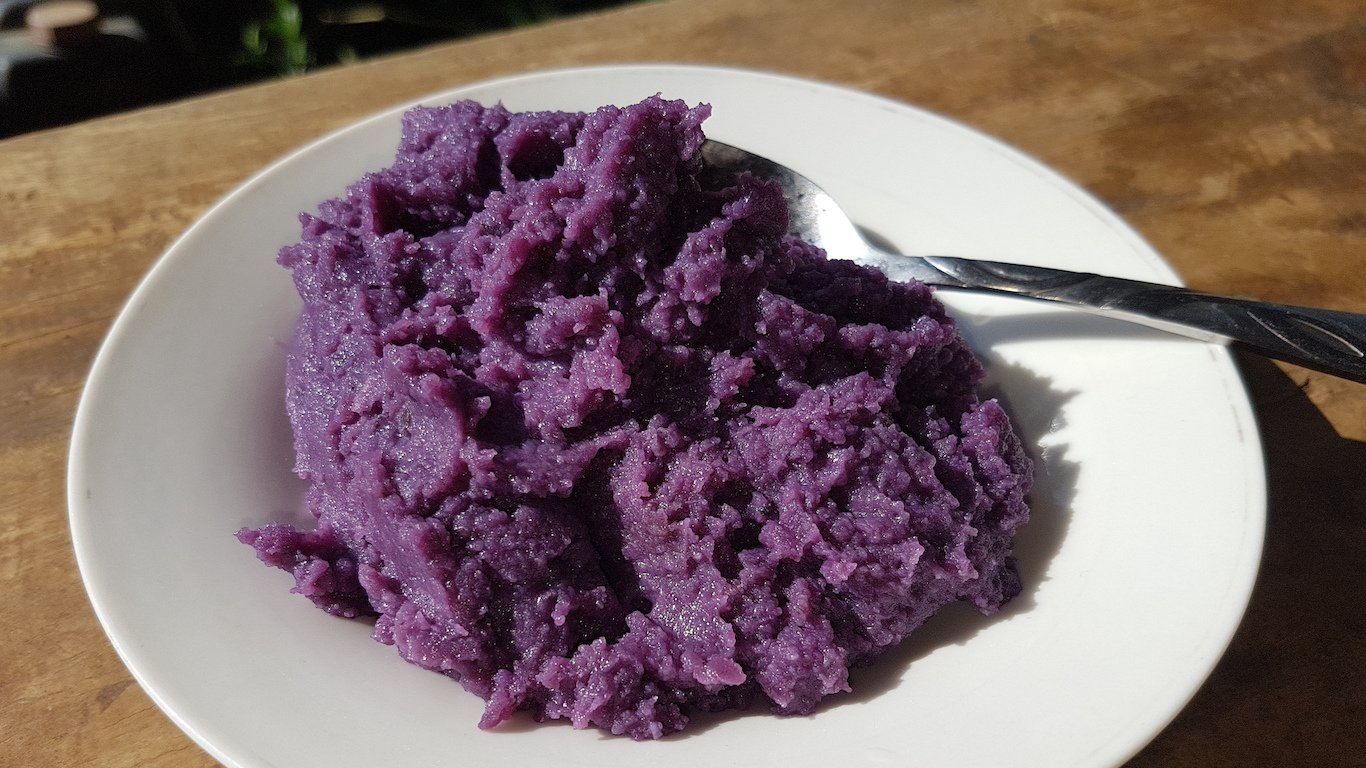
10. Ube
Ube (ooo-beh) is a purple yam, popular in the Philippines, that is showing up as an ice cream flavor (some liken its flavor to that of green tea ice cream) and in other forms of dessert. It has a mildly earthy flavor, and trend-spotters think it has a promising future.
11. Romanesco
More broccoli, but this time anything but a crust. Romanesco, a broccoli variation, looks like something out of “Star Wars” — luminous yellow-green in color and covered in protuberances that suggest bushy little Christmas trees grown in a distant galaxy. It tastes sort of like regular broccoli but is sweeter and milder. It’s great steamed whole and dusted with parmigiano.

12. ‘Nduja
This spicy, spreadable pork sausage originating in the southern Italian region of Calabria, has been around for a few years in this country but deserves to be more widely known. Chefs use it in various ways, but it’s also very good at home just spread on toasted country bread, or on pizza, or slathered inside a quesadilla for a multi-cultural treat.
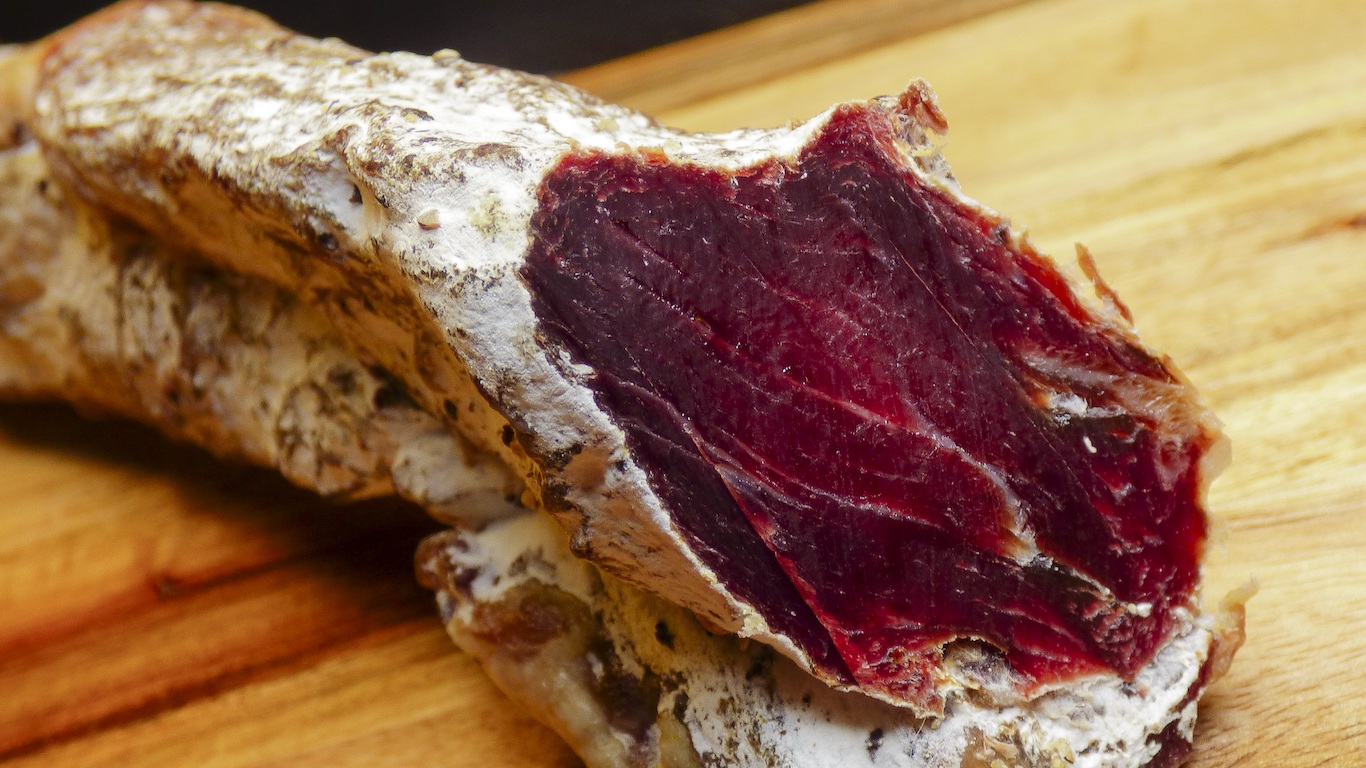
13. Dry-cured lamb
Ham is traditionally made from pork, but in Colonial times, lamb was cured in a similar fashion. At least one smokehouse, Edwards in Virginia, is bringing back that early American specialty. Served thinly sliced and at room temperature like prosciutto, this dry-cured lamb is full of flavor, nicely smoky, and leaner than most ham.

14. Za’atar
In the pure sense, za’atar, which originates in the Middle East, refers to a family of herbs related to oregano. The za’atar that’s beginning to be used by chefs in various ways in the U.S. — and that makes a great seasoning at home for salads, soups, pasta, and other dishes — is usually a mixture of herbs and spices, including oregano, sumac, thyme, and ground sesame seeds. It gives an elusively exotic flavor to whatever it goes on or into.

15. Berbere
Even more exotic than za’atar, berbere is a complex spice blend from Ethiopia and Eritrea. It typically includes both familiar ingredients like dried chiles, garlic, and ginger, and some that are little-known here, including nigella, rue, fenugreek, and a ginger relative called korarima or Ethiopian cardamom. Added to food either dry or in paste form, it adds gentle heat and a distinctive flavor not only to Ethiopian dishes but to soups, roasted vegetables, burgers, roast chicken, and more.

16. Togarashi
Like berbere, this Japanese condiment contains chiles and ginger, but it adds seaweed, orange peel, sesame seeds, and other ingredients. It’s considered an all-purpose seasoning and is often found on Japanese tables next to, or instead of, salt and pepper. You can sprinkle it on almost anything, including both Asian noodle dishes and Italian pasta.

17. Spiced ghee
Ghee is Indian clarified butter, great for cooking with because it doesn’t burn like regular butter does. A number of companies produce spiced ghee, sometimes in non-Indian flavors like herbes de Provence, but those that reflect the Indian flavor palate, like the one involving mustard, cumin, and turmeric, seem particularly appropriate.
18. Chickpea butter
Chickpeas, also known as garbanzo beans, are a versatile vegetable. Besides appearing in salads and as the base of hummus, chickpeas also yield milk, flour (for pasta and other purposes), and even ice cream. Now somebody has had the bright idea of turning them into a peanut butter substitute, blending them with sunflower seeds, olive oil, and cane sugar. It’s not exactly Jif or Skippy, but it isn’t bad.
19. Shrimp paste
This pungent condiment — a little dab’ll do ya — is eaten in various forms all over Southeast Asia. You can add it to stir-fries, Asian soups, rice and noodle dishes, seafood stew — anything you want to infuse with a little mysteriously salty flavor.
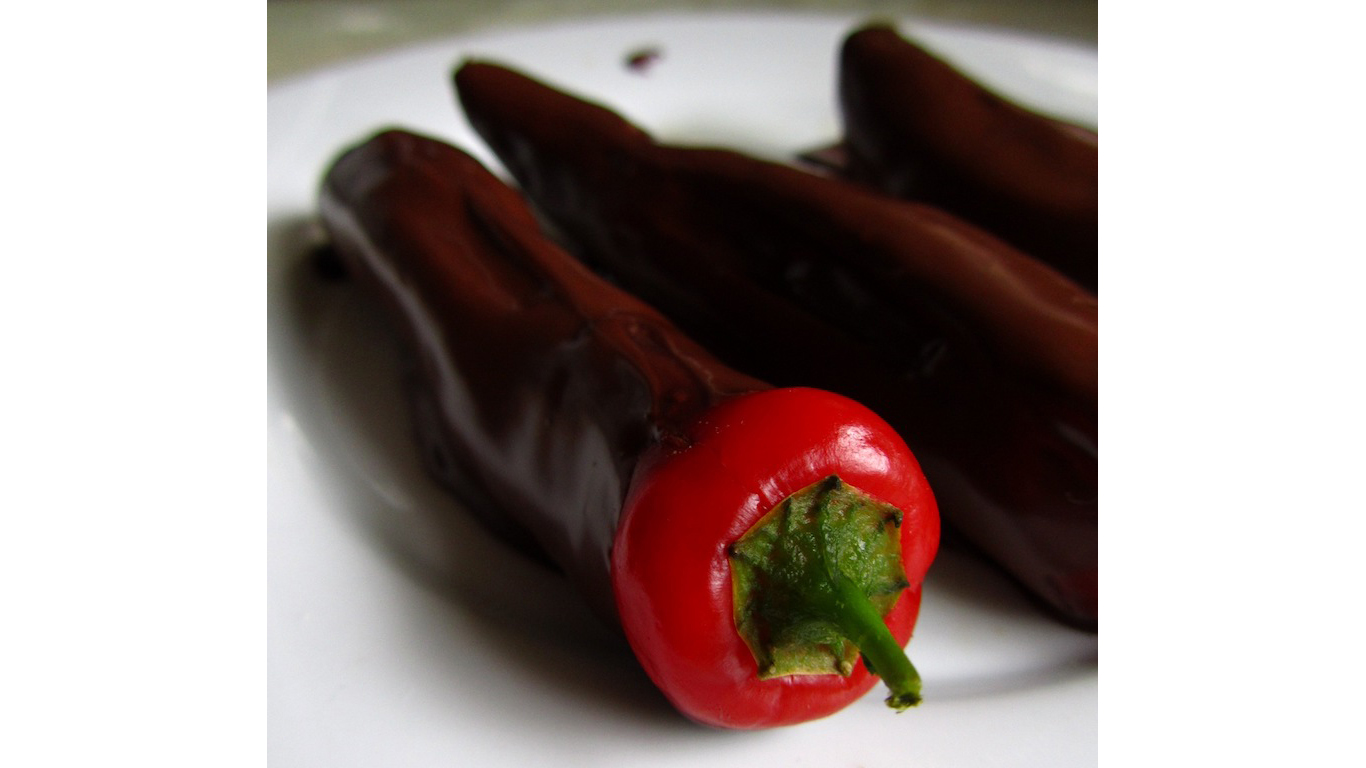
20. Chocolate-dipped chiles
Chocolate-covered fruit is fine, and chile-spiked chocolate is fine, but for those who really like their chocolate full of heat, this is the way to go. Kakawa Chocolate House in Santa Fe, New Mexico, dips whole roasted New Mexican Árbol chiles in agave caramel and then 80% cacao dark chocolate. Fire and nice.
21. Caramel chocolate chip Girl Scout cookies
Introduced early this year, this new entry in the fabled Girl Scout line is made with semi-sweet chocolate chips, caramel, and caramel’s steady date these days, sea salt. It takes the place of Trios, introduced in 2015, a chocolate chip cookie with peanut butter and oats, which always somehow tasted just a little too healthy.
22. Pineapple buns
These sweet dome-shaped sugar buns with a sugary, crunchy top have long been popular in Hong Kong and in Chinatowns around the world. Their name notwithstanding, they contain no pineapple — the upper surface is thought to evoke the pattern on a pineapple’s exterior. Yelp reports that mentions of the buns are cropping up coast to coast.
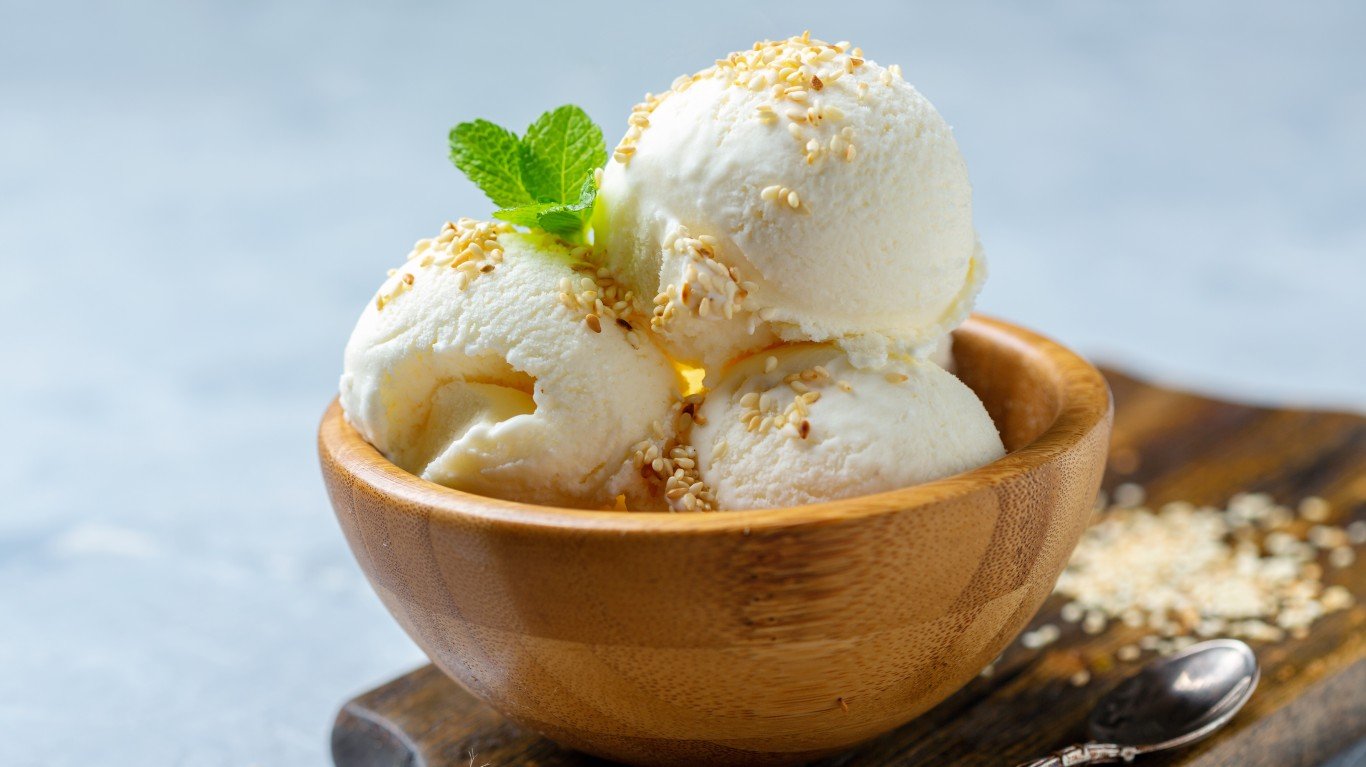
23. Tahini ice cream
You’ll probably have to make this yourself (commercial options are few and far between), but it’s worth it. Tahini — sesame paste — yields a rich, dense ice cream with a subtly nutty flavor. It can be made with egg yolks and cream like other ice cream, or with coconut milk and cream for a vegan variation. Some recipes — which are all over the internet — don’t even require churning.
24. Avocado ice cream
Avocados are a fruit, though we often think of them as vegetables, and the Brazilians, among others, have been making ice cream out of them for years. Since all things avocado are now in vogue, it’s only natural that this unusual delight would start finding an audience in the U.S. There are plenty of recipes for it, but also some commercial versions, including the vegan FoMu and Cado brands and the non-vegan but avocado-rich Magnolia.

25. Coconut yogurt
People choose coconut yogurt — that’s yogurt made from coconut milk, not cow’s milk yogurt with coconut flavor– because they have dairy allergies and/or are vegan and/or expect it to have health benefits beyond those of the ordinary kind. There’s another reason to try it, though: It actually tastes pretty good, especially if it’s one of the brands made with sweetened coconut water.

26. Peeps jelly beans
If you like jelly beans and you like Peeps, how can you resist these? They aren’t shaped like little chicks, unfortunately, though there’s a stylized chick on the package. Each of the three varieties combines one of the fruit-flavored beans (blueberry, strawberry, and lemon) with the Peepish marshmallow flavor. The beans are available only at Kroger’s supermarkets and its (many) subsidiaries around the country.

27. Reese’s Peanut Butter Lovers Cups
You would have thought that all Reese’s Peanut Butter Cups were for peanut butter-lovers, but Hershey’s, which owns the brand, has decided to really put the peanut butter front and center. In this version, the cups have the usual peanut buttery filling and a base of the usual chocolate, but the upper portion of the cup’s shell is now formed from peanut butter cream. If you’re a fan of the standard version of these confections, you’ll like these even more.
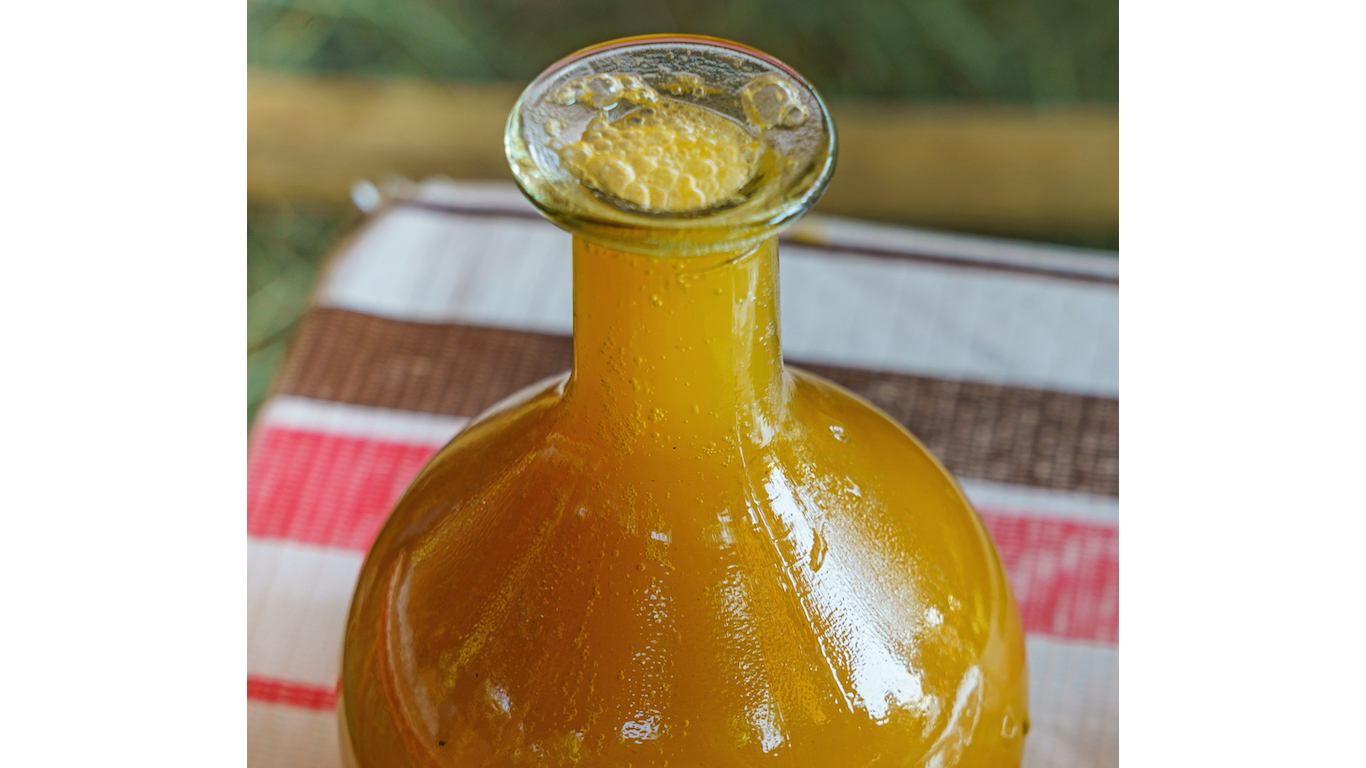
28. Tej
Tej is Ethiopian honey wine, or mead, flavored with the powdered leaves and twigs of a plant called gesho, a kind of buckthorn, that adds a tinge of hops-like bitterness. There are some commercial brands available — including one brewed in Oakland, California — but they’re hard to find. Most Ethiopian restaurants will serve it, however, and it’s really very nice — not overly sweet, but pleasant and refreshing.

29. Hard kombucha
Kombucha is fermented tea from China, and hard (meaning alcoholic) seltzer is sparkling water with about the same alcohol content as light beer. Both have been big trends in recent years, so it’s natural that somebody thought to basically merge the two. The ABV of these drinks typically ranges from 3% to 8%, and they tend to be flavored with various fruits, herbs, and spices (blueberry basil, blood orange mint, etc.). They have more body and generally more punch than hard seltzer and make a good substitute for your usual IPA or cider.
30. Milkshake IPAs
Speaking of IPAs, don’t worry: Milkshake IPAs, a newly popular craft beer category, aren’t spiked milkshakes or beer and ice cream blends. They’re a variation on a New England-style ale to which lactose, pectin, or oats have been added during the brewing process to produce a particularly thick, creamy texture. Various kinds of fruit, non-fermentable sugars, and spices like vanilla are usually included. They’re sort of like hop-tinged smoothies (though in fact there’s also a category known as smoothie IPAs). To put it another way, their relation to a straightforward pint of bitter is about like that of a fancy Frappuccino to a cup of pour-over Joe.
